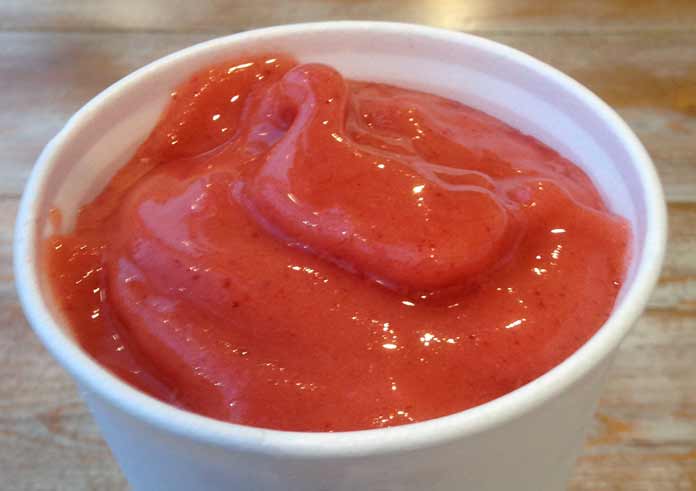The Virginia Department of Health is investigating a hepatitis A outbreak associated with smoothies from Tropical Smoothie Cafe restaurants in Virginia. Genetic testing shows that the illnesses were caused by a strain of the virus that is associated with previous outbreaks linked to frozen strawberries imported from Egypt.
 Tropical Smoothie Cafe immediately recalled all strawberries sourced from Egypt and found an alternative supply. So far, there are 10 people sick in this outbreak. Two cases are in eastern Virginia.
Tropical Smoothie Cafe immediately recalled all strawberries sourced from Egypt and found an alternative supply. So far, there are 10 people sick in this outbreak. Two cases are in eastern Virginia.
Other restaurants and suppliers may have received the imported frozen strawberries. Public health officials, including the Virginia Department of Agriculture and Consumer Services, the U.S. Food and Drug Administration, and the Centers for Disease Control and Prevention are working to traceback the distribution of the frozen berries.
There is no information about when these berries were sold by Tropical Smoothie Cafe. The press release does state that “Anyone who consumed a smoothie with frozen strawberries at a restaurant within the last 50 days is encouraged to watch for symptoms of hepatitis A. If illness occurs, seek medical care and take steps to protect others from the infection.” It can take weeks for an infected person to show symptoms, so the berries may have been sold in smoothies and perhaps at other restaurants in other forms months ago.
Vaccinations against the virus are only effective if given within two weeks of exposure. Anyone who consumed a smoothie from a Tropical Smoothie Cafe in Virginia that contained frozen strawberries on August 6, 7, or 8, 2016 can still get a shot. If you have had hepatitis A in the past or have been vaccinated against it, you are immune and should not be at risk for acquiring the infection again.
Hepatitis A is an inflammation of the liver caused by the hepatitis A virus This virus is very contagious, and can be spread through contaminated food and drink, through person-to-person contact, and through contact with contamianted surfaces and objects. Since people are infectious before they show symptoms, the virus spreads very easily.
The symptoms of hepatitis A include jaundice, fever, fatigue, loss of appetite, weight loss, nausea, vomiting, abdominal pain, dark urine, and clay-colored stools. People usually get sick about two weeks after exposure, but symptoms may not appear for up to 50 days.
To prevent the spread of this illness, wash your hands well with soap and warm water before preparing and serving food and drink to others. Always wash your hands after using the bathroom, changing a diaper, or caring for someone who is ill.
If you are sick, stay home from work or school. If you work in food service, the healthcare industry, or in childcare or schools, it’s very important that you stay home. These people may want to consider getting a hepatitis A vaccination to protect themselves and others from the illness. Vaccinations are also recommended for all children, for travelers to other countries, and for those who may become very ill if they get sick.
People with the most serious complications from hepatitis A include the elderly and those with chronic liver diseases. If you do get sick with these symptoms, see your doctor.




